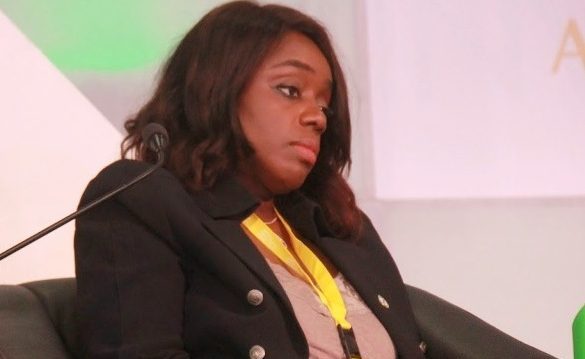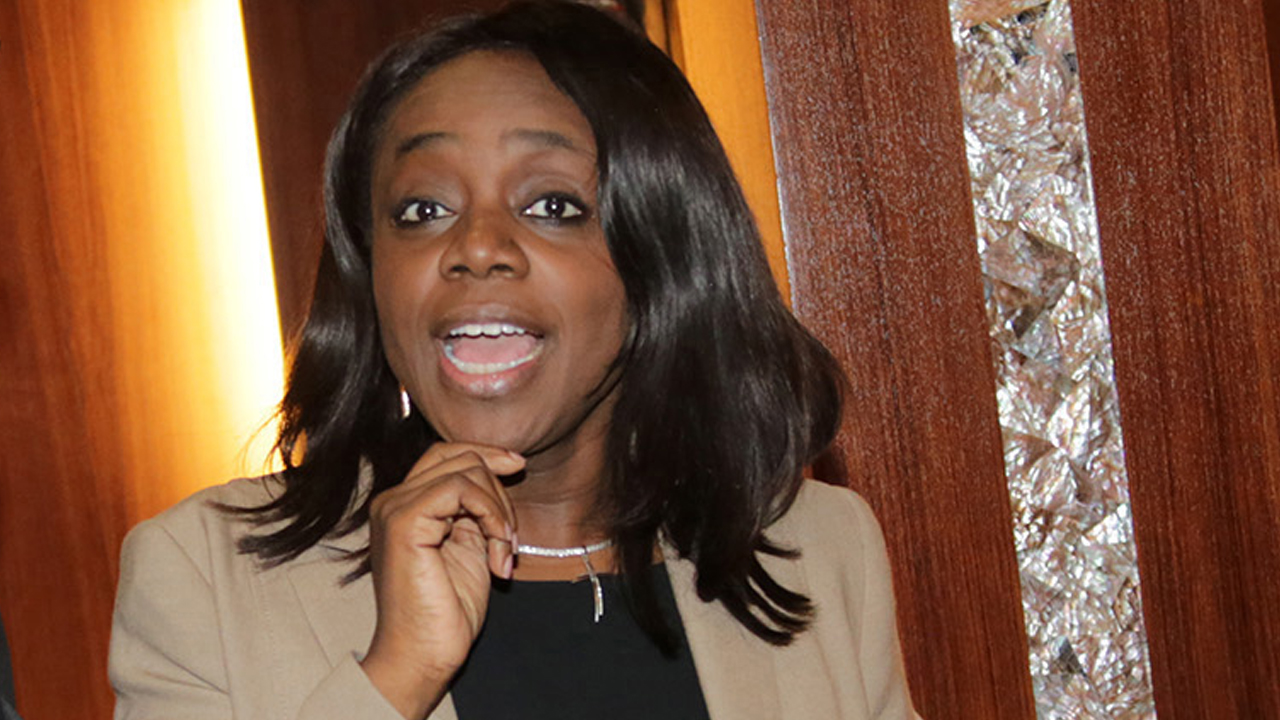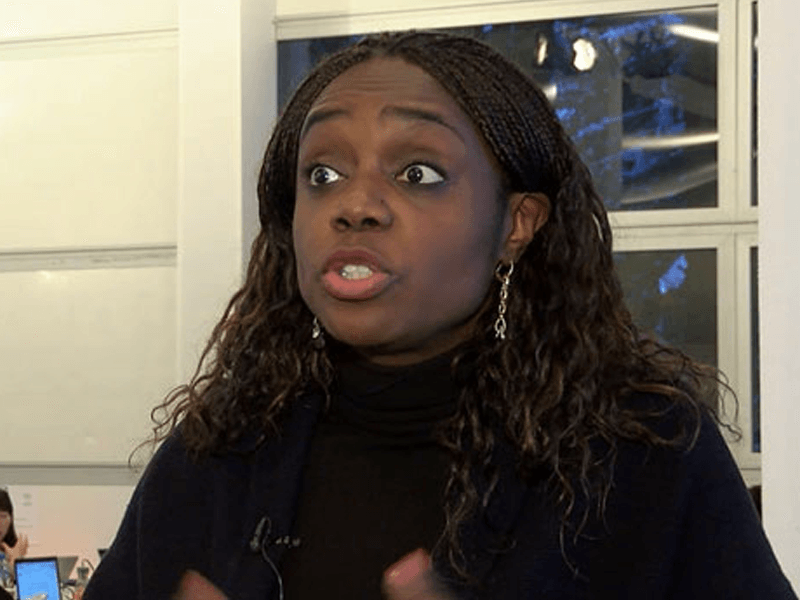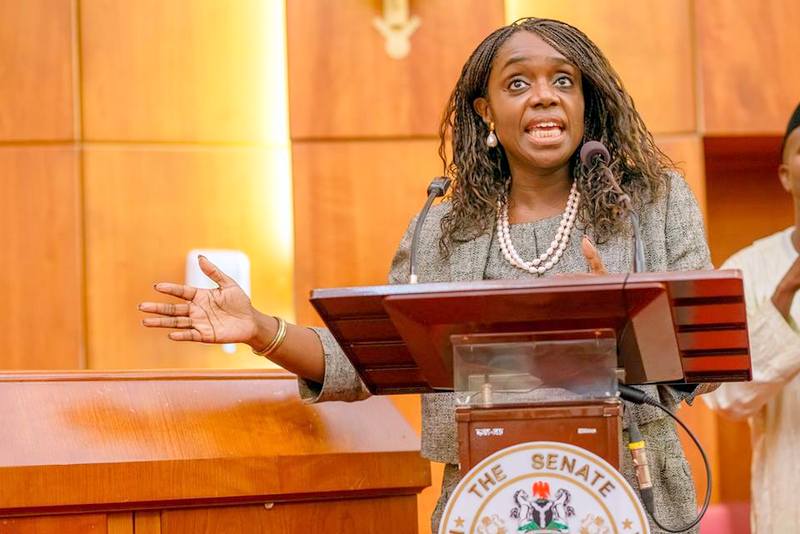…as FG hires asset tracers to go after 150 money bags in Nigeria
The Federal Government has said there will be no hiding place for tax evaders in the country as even the beggars will now start paying taxes from their ‘income’.
The government has also engaged the services of asset tracing-companies to investigate the tax payment status of 150 firms/individuals.
This was revealed on Thursday in Lagos by the Minister of Finance, Mrs. Kemi Adeosun.
Adeosun explained that investigators would rely on information derived from Bank Verification Number (BVN), records of property ownership, records of foreign exchange allocation, and records of company ownership from the Corporate Affairs Commission (CAC), among others, to ascertain the income status of the companies/individuals vis-a-vis their lifestyle.
The minister, who delivered a lecture at PWC’s Business School, with the theme: “Voluntary Assets and Income Declaration Scheme (VAIDS) Interactive Session for Executives and Business Owners” said: “We are using some firms (I will not mention their names) to trace assets internationally.
“We are working alongside projects we have locally, like the Bank Verification Number (BVN), records of property ownership, records of property allocation, records of company ownership from the Corporate Affairs Commission (CAC), among others. It is from these projects that we look at how much tax such companies or individuals should be paying”.
She said findings from these statistics would be computed, and compared with how much tax the person/company is paying to know if the right taxes are being paid or not.
Adeosun said: ”The investigators’ findings will enable us compare the income and how much tax the company/person is really paying, and that gives us lots of information. But we encourage people to come up and pay their taxes willingly.”
She added: “You can register a high-end car. It tells me something about your income. So we look at your tax returns. If you registered Mercedes E-Class and you are paying N100,000 tax, then something is wrong. Those are red flags. We now have the capacity to assess people accurately.”
The minister said no one would be left out in the campaign to enlarge the tax net adding that the response being received so far showed that people were embracing the tax policy..
She said some beggars were earning millions, and the government would even look at their lifestyles and tax them, adding that “even proceeds from begging are taxable. You are supposed to pay taxes even if your means of income is begging”.
To Mrs Adeosun, tax is a matter of law and Nigerians should continue to pay. “We are trying to build an economy where we have oil and other things. It is going to be oil plus and wider economy,” she said.
Asked whether the funds from taxes will be judiciously used, she replied: “Why I think the resources will be used judiciously is because when people pay taxes, they get involved. When people do not pay taxes, when you call for budget meetings, they will not come. But when they pay their taxes, if the government says these are the projects we want to execute on the budget, people will show up because they have contributed to the tax revenues.”
In her view, such contributions improve the democratic process. “As our tax revenues go up, governance will improve. We have many projects we want to execute and I think if we have the funds, they will be executed. I think we are seeing improved budget performance. That will lead to getting the roads done, and improve the condition of our schools. Progressively, what we should look out for are improvements in the standard of living, and lifestyles of Nigerians as we get more tax compliant.”
The minister said government set a preliminary tax target of $1 billion annually, but her belief is that the target can be surpassed. “I think we can get more, and let’s see how it goes. For me it is not about how much money we recover it is about getting more people to pay their right taxes continuously. How much we recover from taxes is not as important as getting people into the tax net and paying the right taxes,” she added.
The minister also disclosed that the people who are paying taxes are mainly those whose taxes are being deducted from source. Also, the people who seem to be evading taxes are either on their own business, or high net-worth individuals.
“Ideally, they are supposed to be the biggest tax payers. What is happening now is that the lower earning people are carrying the huge burden, which is really unfair. So, we need to reverse that. Everybody has to pay their fair share, according to their level of income,” she said.
Mrs Adeosun spoke of tax as a means of income distribution, adding that taxes should be taken from the rich, to support the poor.
Explaining how it works, she said: “If somebody has a property. We have no problem with that. The only thing the tax man asks you is where did you get the money to buy the property? If you bought it for N20 million, that’s no problem, but the income you used to buy that property would have been subjected to tax. If you show us your tax slip then no problem.”
“But what we are finding out is that there are someone people with a property of N20 million, but when you look for the tax returns, they paid only N15,000 annually for the last seven years. So, how did they fund that house? What that means is that the person has other incomes, which was not declared to the taxman because for you to own that house, it is either the money was stolen, or it was inherited. If it was stolen, another agency will deal with that, because it is not for us.”
“In that case, you will tell us, from whom you inherited it, and such information can be confirmed. From your income, you couldn’t have earned that. So, we want you to now declare those incomes. We want to correct people, whose lifestyle is not commensurate with their income. It may be house, it may be private jet, and so on.”
To Mrs. Adeosun, it is regrettable that while most developing countries have tax to Gross Domestic Product ratios above 20 per cent, Nigeria still records a global low of six per cent.
She said the Federal Ministry of Finance, in a bid to address this, set up the Voluntary Assets and Income Declaration Scheme (VAIDS) in collaboration with the 36 states. The scheme was launched by the Acting President Prof. Yemi Osinbajo.
The main objective of VAIDS is to increase the number of taxpayers in the tax net and raise revenue for government. Specifically, it is expected to increase Nigeria’s tax to GDP ratio from six per cent to between 10 per cent and 15 per cent, broaden the national tax base, curb tax evasion and discourage illicit financial flows.
Besides, it is expected to improve good governance, guarantee a better quality of life, encourage robust national planning and increase the size of the formal economy.
Mrs. Adeosun stated that at six per cent, Nigeria’s tax compliance rate was low whilst most developed nations were at 30 to 32 per cent. “Prosperous nations have high levels of tax compliance whilst poor nations have low rates. Nigeria aspires to be a prosperous nation, so this problem must be solved,” she said.
The scheme, which began on July 1, will last nine months and will be implemented by the Federal Inland Revenue Service (FIRS) in collaboration with all 36 State Internal Revenue Services and the FCT IRS.
Taxpayers who make full and honest declarations will enjoy a waiver of interest and penalty, immunity from prosecution, confidentiality of information supplied, exemption from tax audits for the periods covered by the disclosure and flexible payment of tax due. Taxpayers who fail to participate in the scheme will be investigated and if found culpable will face trial.
LIRS Executive Chairman Ayo Subair said: “We have seen the positive impact taxpayers’ money can make at the state level in terms of social services, administration of government and infrastructure development. So we are fully supportive of this initiative and we are ready to assist as many taxpayers who would like to take advantage of the Scheme to remediate their tax affairs,”
According to Taiwo Oyedele, Head of Tax at PwC Nigeria, “paying taxes is not particularly easy anywhere in the world for anyone who has expended time, energy and other resources to earn the income”. “However, it is necessary for there to be an organised society for the benefit of all.”
In his welcome address at the session, Uyi Akpata, Country Senior Partner, PwC Nigeria said: “This session and indeed the renewed interest and policy direction on taxation by this administration is a positive development for the transformation of our economy. At PwC, we have consistently made the point that reliance on oil as the main source of government revenue is not sustainable and that other forms of revenue generation, such as taxation, must be explored for Nigeria to build a truly viable economy and reach all of its potential. On taxation, we have over time advocated various initiatives to broaden the tax base, reform the tax laws, and improve the ease of paying taxes so we are happy that some of these ideas are beginning to take life.”





